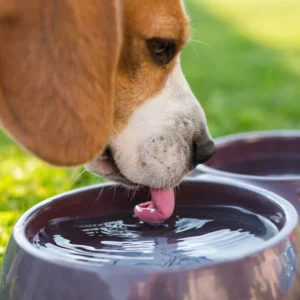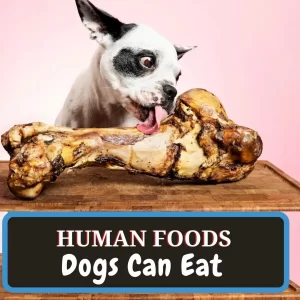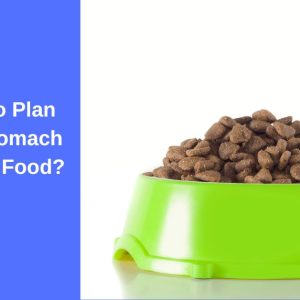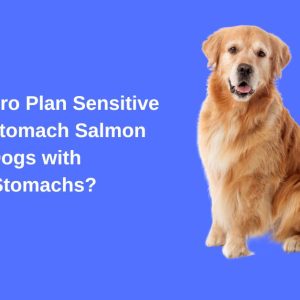
Yes. Dogs are Omnivores. But why find out the reason.
Are Dogs Omnivores Or Carnivores? Are you wondering what to feed your dog? The answer is actually very simple.
Are dogs omnivores or carnivores? The answer is that they are both! All animals need a healthy mix of both plant and animal foods in order to thrive, but the proportions will vary from one species to another. In this blog post I’ll tell you everything you need to know about which kind of food your dog needs as well as how much he should be eating at each meal.
Table of Contents
Why are Dogs Omnivores?
Living with humans is not easy, especially if you have a dog. They have to eat what is given to them and they cannot decide for themselves. Are dogs omnivores? Yes! But, with some exceptions which will be discussed later in this article about Are Dogs Omnivores Or Carnivores.
Related: Is a dog Mammal?
Dogs’ adaptive metabolism allows them to digest a wide variety of foods and feed on many sources.
This means that dogs can eat both meat and plants, unlike cats which are exclusively carnivorous (they cannot survive by eating plants). This is the main difference between Are Dogs Omnivores Or Carnivores .
Cats have been domesticated longer than dogs.
What Makes Dogs Omnivores?
Dogs Are Omnivores Because They Are Not Able To Digest Plant Fiber Well (or at all).
Secondly, dogs lack an enzyme called amylase which helps them digest starches and sugars found in plants. Their pancreas cannot create this enzyme either
Also, dogs have much lower basal metabolic rates (which means they require less food) and their stomachs produce less acid than herbivores.
This is Are Dogs Omnivores Or Carnivores .
Finally, dogs pant to cool themselves down rather than sweat like humans do. This limits the amount of time a dog can spend hunting for prey in hot climates. Also,because they are unable to cool themselves down through perspiration.
Their only sweat glands are located on the bottom of their paws, so they do not have any other option than panting in order to regulate their body temperature.
Also, dogs cannot produce taurine from methionine and cysteine.
Carnivorous animals can produce taurine in their body, while herbivores cannot synthesize it at all. Lack this ability which means that they must get taurine from plant foods.
Omnivore qualities
Dogs have teeth (molars) and jaws which allow them to cut and crush food. because they can eat meat as well as plants by tearing, shredding and mashing their prey before swallowing it whole.
Their teeth are adapted for chewing both plant foods (herbivorous) and animal flesh (carnivorous).
Dogs can digest 100% of the carbohydrates because their digestive system operates similarly to that of humans.
This means Dogs are able to break down most kinds of carbohydrates which they eat. They can even digest cooked starches and grains, unlike cats who cannot do this at all
Dogs have a small intestine that occupies about 23 percent of the total gastrointestinal volume. Because they have a much shorter small intestine than carnivorous animals which means that their food spends less time being digested in the stomach and small intestine before it reaches the large intestine for absorption of water, minerals and vitamins
Dogs Have a Natural Carnivorous Bias
From DNA studies, we know dogs evolved directly from the timber wolf because they evolved from wolves who are carnivorous animals
What Dogs Should Eat?
As dogs Omnivores because they are not able to convert the beta-carotene in plant foods into vitamin A, which means that this nutrient must come from animal sources.
Dogs should eat a balanced diet of high quality protein, fat and carbohydrate.This means dogs should eat a combination of foods that contain meat, vegetables and fruit.
What Sort Of Foods Are Best For Omnivores?
Dogs are omnivores, not carnivores – but what does this mean for their dietary needs? There’s no simple answer. Most people think that all you need is some kibble from the grocery store and your dog will be set with his or her nutritional requirements met; however it can actually get quite difficult when trying to find “the perfect” food in order to satisfy them completely.
A lot goes into deciding if something counts as dinner: protein sources like meat (or eggs), carbohydrates which give energy during digestion stages after eating breads/cereals etc., fiber helps regulate bowel movements by acting both internally via bulk effect on intestines so stools stay firm longer versus moving around aimlessly through
Nutritional Requirements
Dogs are omnivores, meaning that they eat anything from meat to vegetables. In order for a dog’s body to stay healthy it needs the nutrients found in both plant-based foods and animal protein sources such as meats or eggs which can help with building strong bones while also providing essential vitamins and minerals needed by these animals who depend soley on their own hunt skills for survival!
Puppies especially need plenty of calcium rich dairy products early on because this will affect how hard his/her adult teeth grow when teething; without enough fat during infancy he’ll be less likely able chew tough sugary snacks later
Focus on Complete Nutrition
Dogs need more than food to stay healthy! They also require a balanced diet that’s rich in vitamins and minerals, appropriate for their age. Consult your veterinarian if you’re unsure what is best or how often they should be feeding – it could save both time and money together with some extra effort on our end going forward.
Can dogs eat grains?
Can dogs eat grains? You might think that they cannot, but this article will show you some ways to sneak someone into their diets.
1) Find out what kind of cereal is being offered and serve it with dry kibble or whole food supplementation like treats made from oatmeal sticky rice flour (they’re really tasty). 2-3 cups per day should be enough for most dog breeds; if not then adjust accordingly by adding more servings at specific points throughout each feeding period 3), Cooked barley can also be given as long it has been cooked first so there’s no chance whatsoever evolve ruining its nutritional properties
Conclusion
If you’ve ever wondered what to feed your dog, or are considering adopting a new pup and want some guidance on feeding them properly, let us know! We have the answers. It turns out that dogs are actually omnivores meaning they can eat both plants and animals. As long as they get enough protein in their diet, it doesn’t matter if the meat comes from an animal or plant source because all proteins contain amino acids which are essential for growth. The key is making sure there’s variety so your pet never gets bored with their food choices – part of ensuring that they’re healthy too! Have any questions? Let me know in the comments section below!





